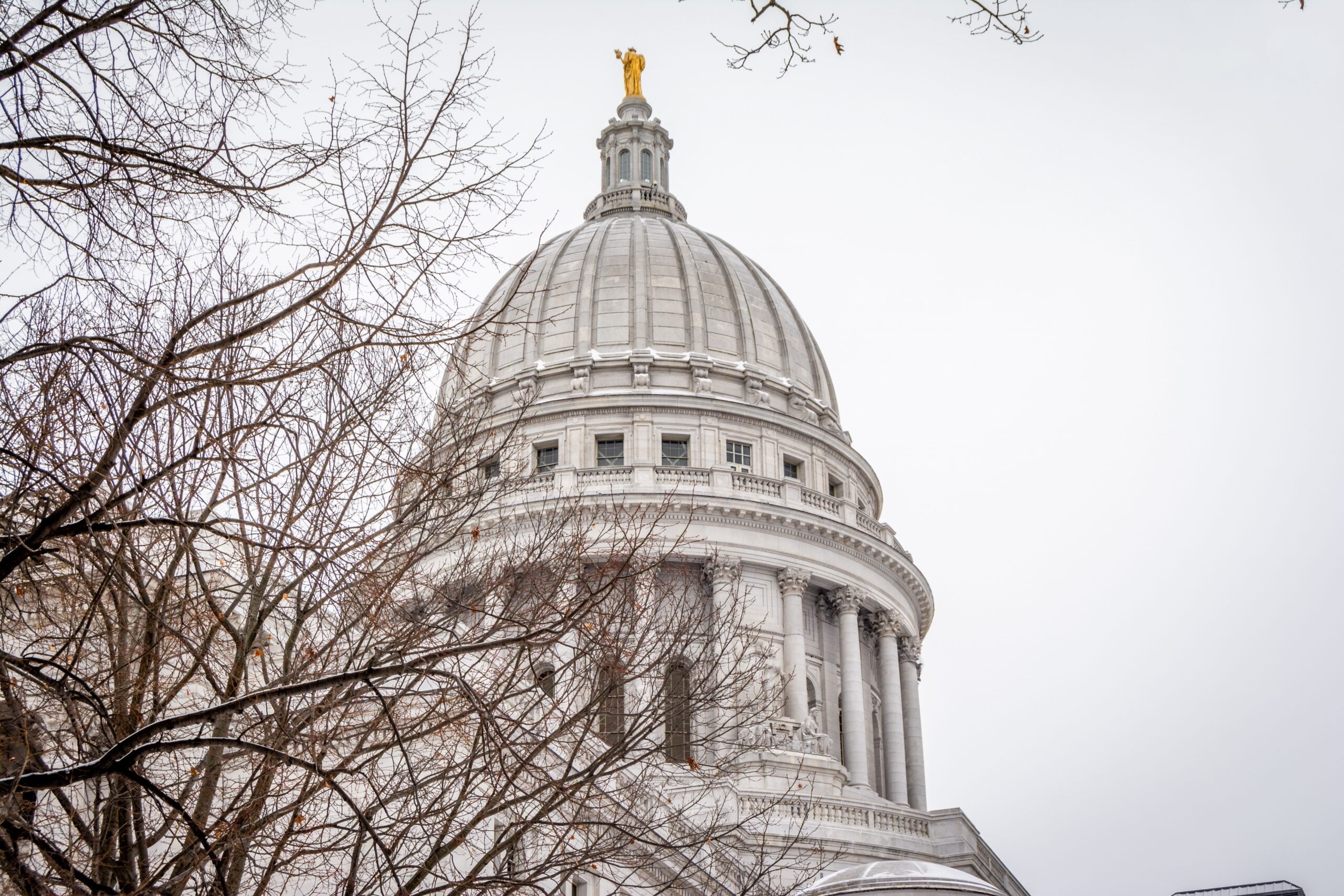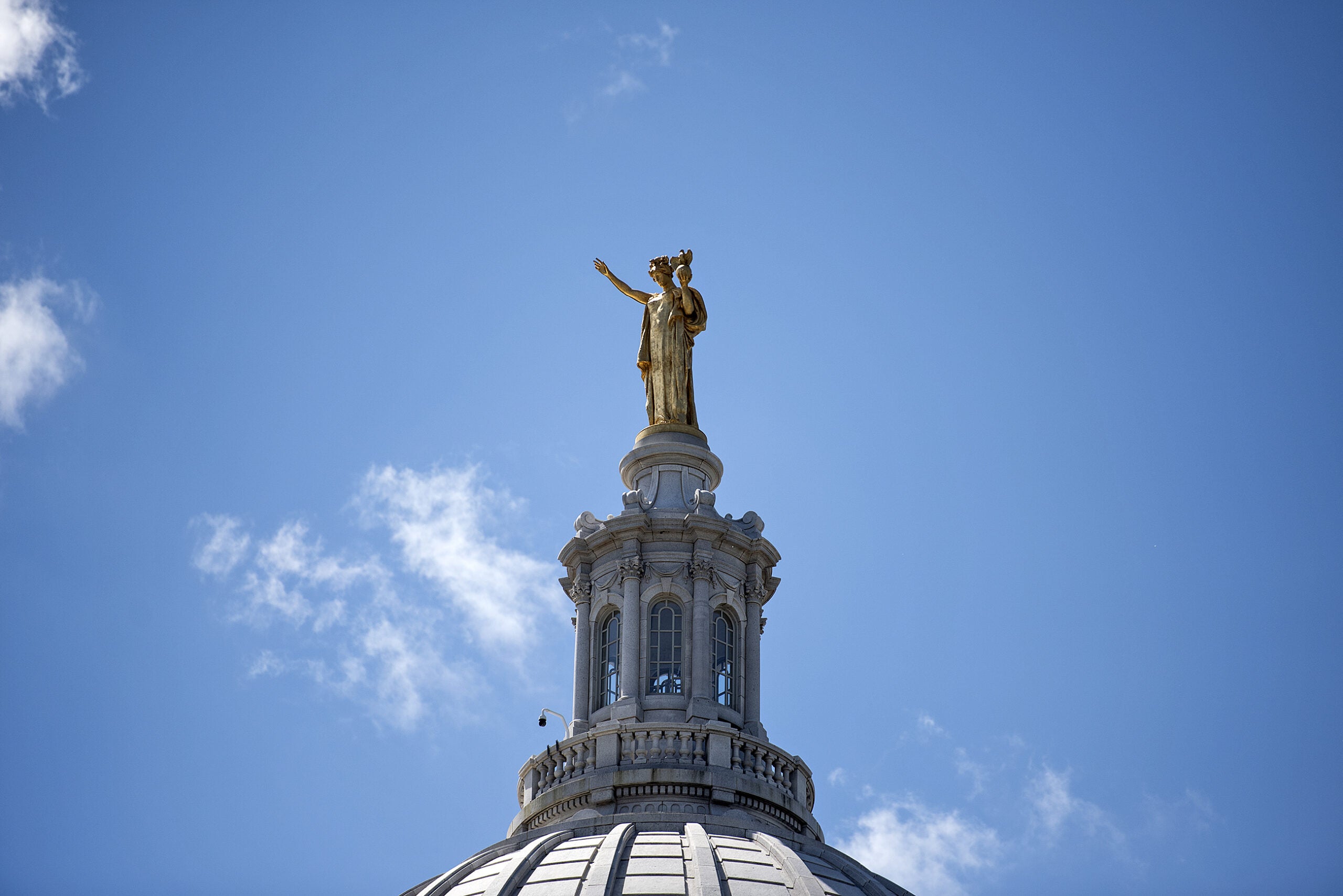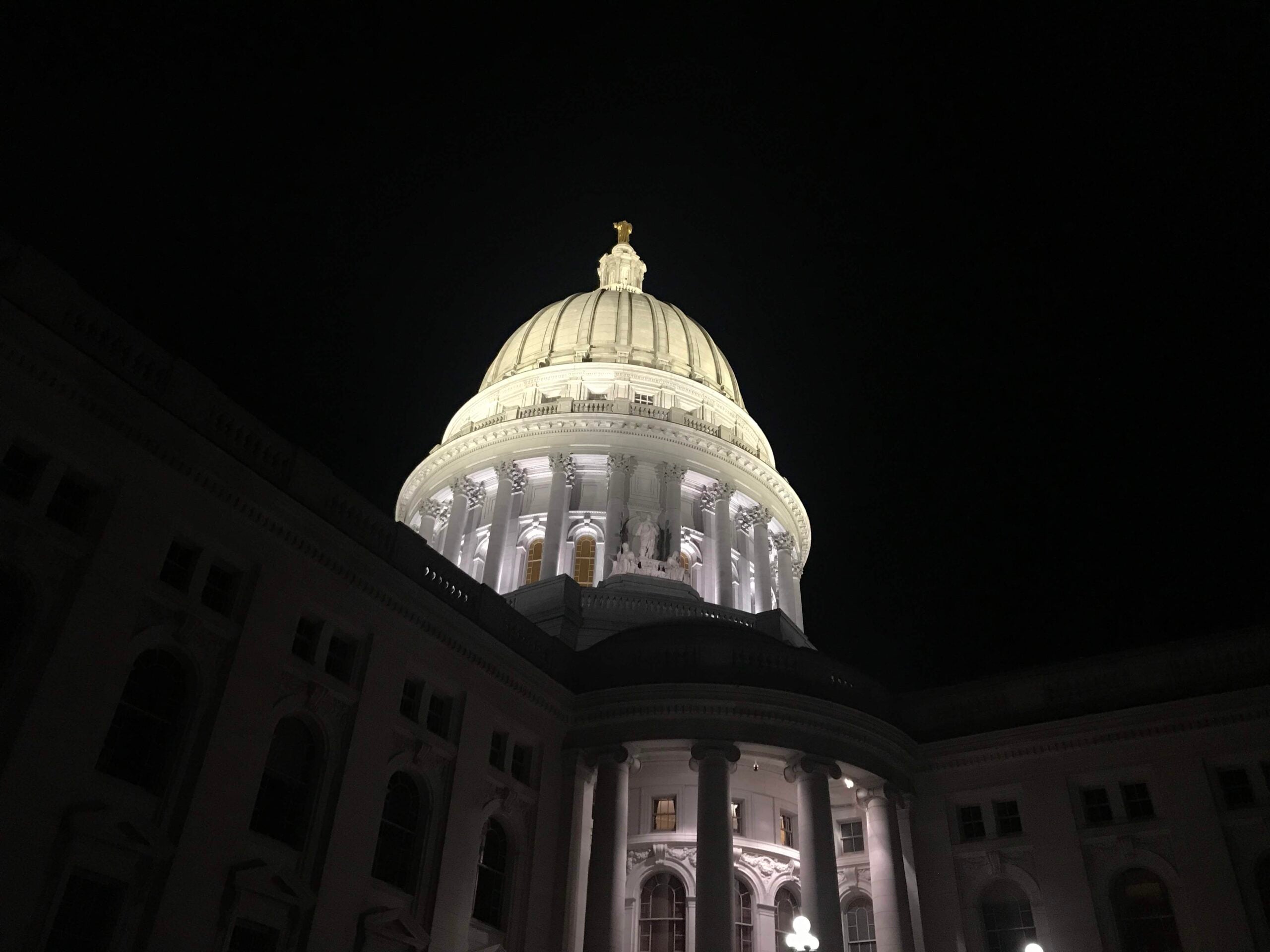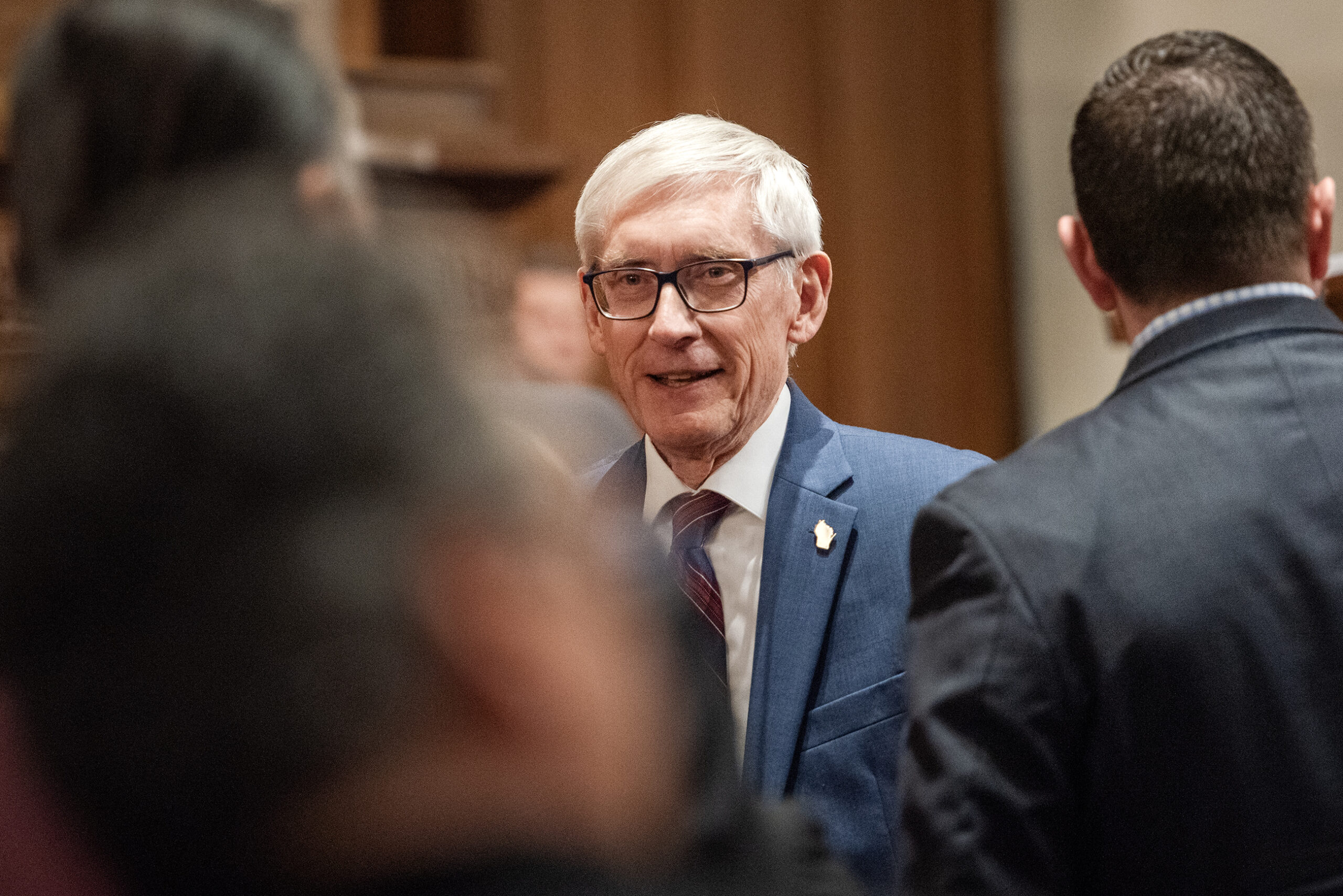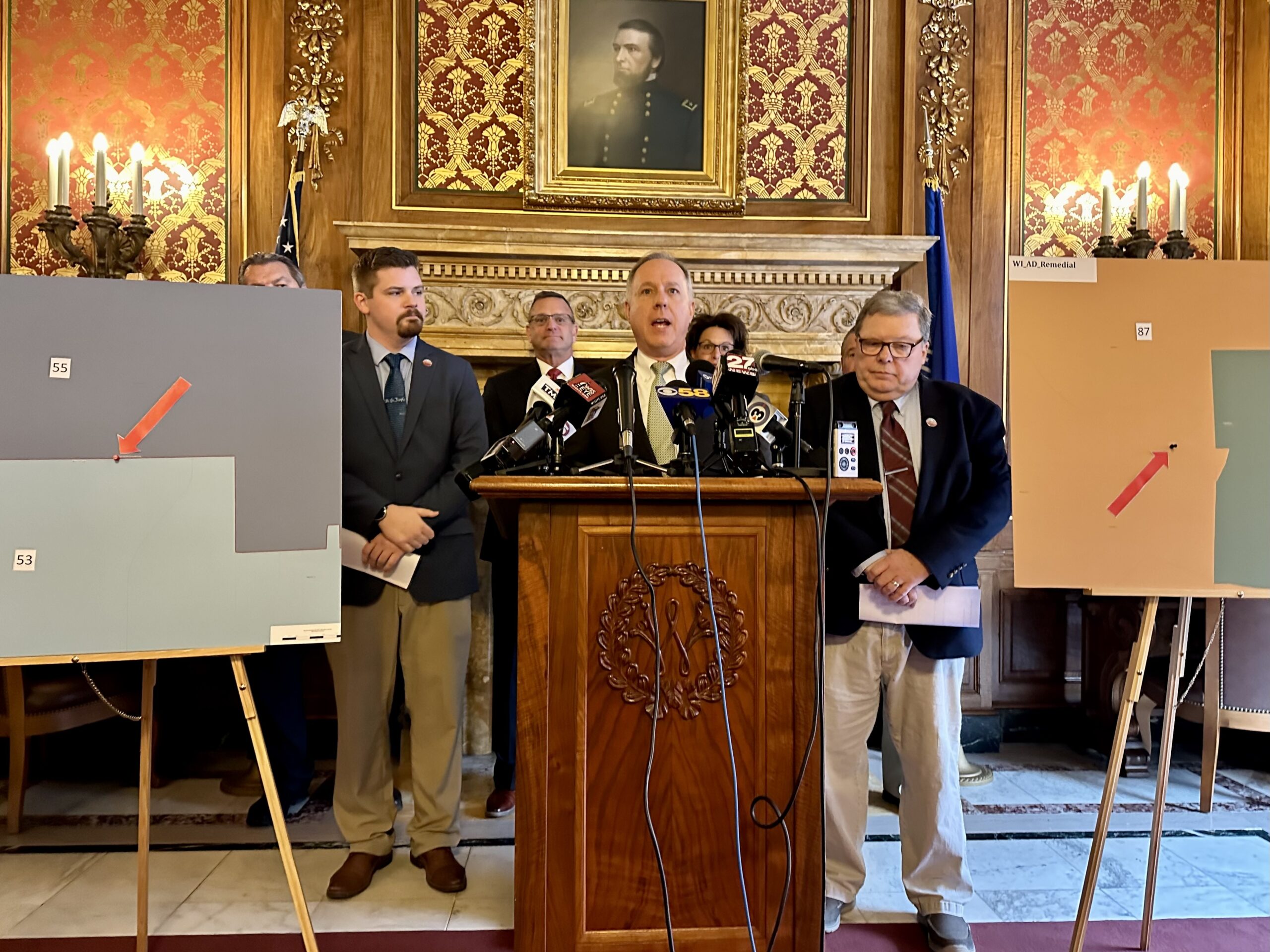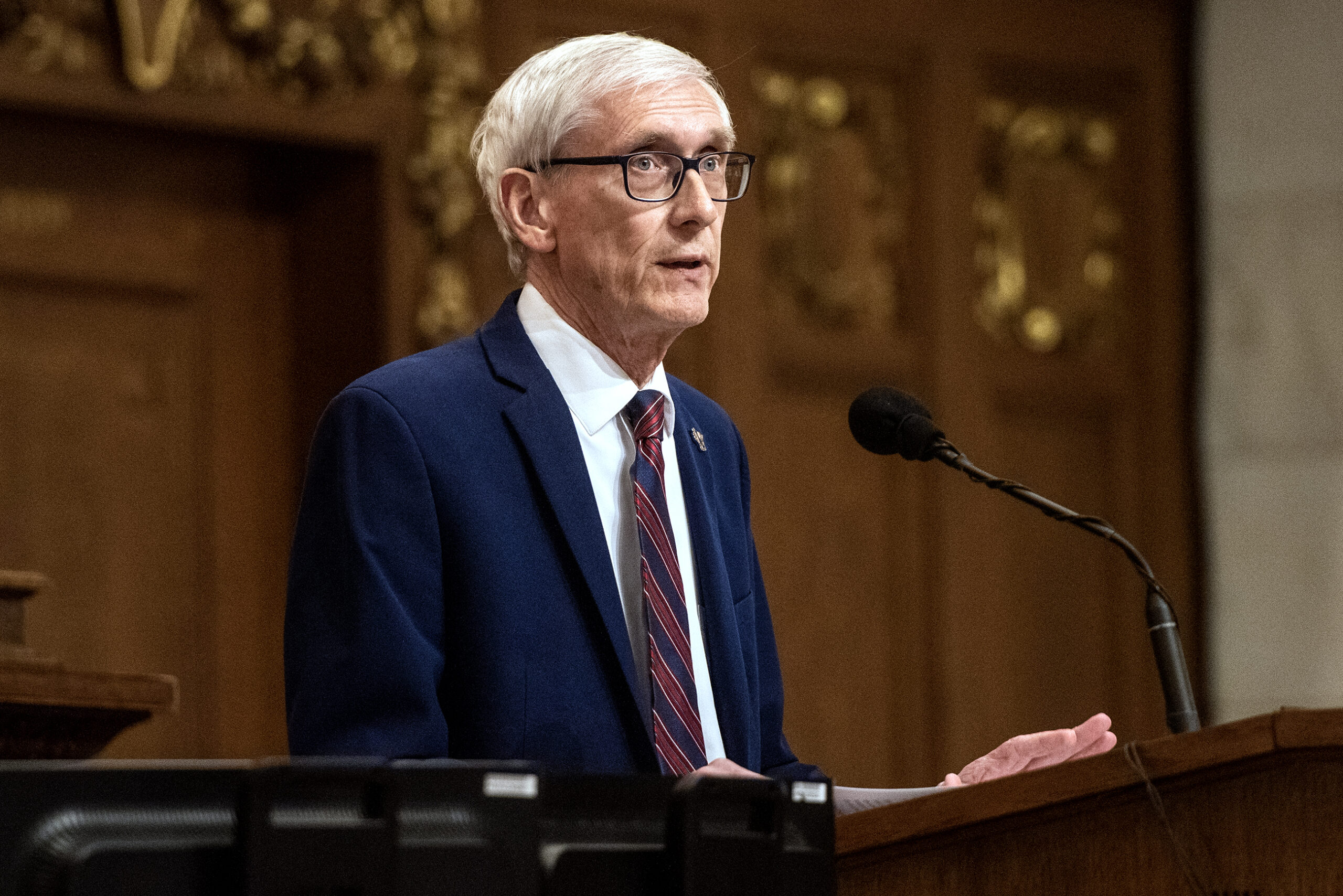Gov. Tony Evers has issued a new statewide mask mandate in Wisconsin, roughly an hour after the GOP-controlled Legislature passed a joint resolution overriding the governor’s previous COVID-19 emergency declaration and mask mandate.
Evers’ move likely sets up future back-and-forth between the executive and legislative branches over pandemic states of emergency and Wisconsin’s masking requirements. For every mandate Evers issues, the Legislature could vote to overturn it.
State law gives lawmakers the power to end a governor’s emergency declaration with a majority vote in each chamber of the Legislature. The move is accomplished through a joint resolution, not legislation, which means it cannot be vetoed by the governor.
Stay informed on the latest news
Sign up for WPR’s email newsletter.
In a prepared statement, Evers said he promised the state at the outset of the pandemic he would “never stop doing everything in (his) power to keep Wisconsinites healthy and safe.”
“Well, every step of the way, our statewide strategies to contain this virus and prevent the spread have been met with lawsuits, political rhetoric, and obstruction,” Evers said in the statement. “Unfortunately, that happened again today when Republicans in the Legislature came in to vote down our state’s public health emergency and end requiring face coverings in public places.”
Of his new mandate, Evers said, “We’re going to keep putting people first, we’re going to keep listening to the science, and we’re going to keep working to save lives so we can get through this pandemic together.”
GOP leaders didn’t immediately respond to a request for comment on whether they will immediately move to override the new emergency declaration and mask mandate.
Governor’s Move Quickly Followed Assembly Vote On Thursday
Shortly before Evers’ action, the state Legislature had approved a joint resolution overriding his previous COVID-19 emergency declaration and statewide mask mandate.
The joint resolution passed the Assembly on Thursday afternoon on a vote of 52-42, with most Republicans voting in favor and Democrats against. The measure passed the state Senate last week. It was expected to officially take effect on Friday, when GOP leaders were scheduled to sign copies of the joint resolution.
Republicans and Evers’ administration have been clashing for months over the role of state government in responding to the pandemic. Numerous GOP-backed lawsuits, including one still pending before the state Supreme Court, have limited Evers’ powers. As such, the mask mandate is the last statewide measure aimed at curbing the spread of the coronavirus in Wisconsin.
During Thursday’s Assembly debate, GOP lawmakers argued Evers shouldn’t be able to issue multiple states of emergency related to the pandemic without approval from the Legislature. Since the pandemic hit Wisconsin, Evers has issued six COVID-19 emergency declarations, each of which lasts 60 days and can be extended.
Assembly Majority Leader Jim Steineke, R-Kaukauna, argued lawmakers needed to “stand up” for the powers of the legislative branch. He argued Evers wants to “rule by fiat” during the pandemic.
“I don’t know when legislators became comfortable with delegating their authority to the executive branch, creating an office where he can do whatever he wants,” Steineke said. “That’s not how this was set up.”
Steineke said the emergency declaration repeal wasn’t “about masks,” but Democrats pushed back on that.
Rep. Robyn Vining, D-Wauwatosa, argued Republicans were prioritizing a partisan battle with Evers over public health.
“Pandemics aren’t partisan — we should be wearing masks; masks save lives,” Vining said. “There is nothing redemptive about this resolution. You pass this, you don’t save a single life … you just hurt people, you threaten the economy and people really might die.”
Seven Republicans joined all Democrats in voting against the joint resolution. Those GOP lawmakers were Reps. Joel Kitchens, R-Sturgeon Bay, Jeffrey Mursau, R-Crivitz, Todd Novak, R-Dodgeville, Loren Oldenburg, R-Viroqua, David Steffen, R-Green Bay, Ron Tusler, R-Harrison, and Jessie Rodriguez, R-Oak Creek.
In a prepared statement after the vote, Rodriquez said she was concerned the joint resolution sent the wrong message to her constituents.
“Having personally spoken to constituents who are concerned about the slow vaccine rollout, my concern is that the timing of this joint resolution could send mixed messages to the public concerning our priorities,” Rodriguez said. “My priorities are to keep Wisconsin businesses open and get all of our children back to in-person schooling as quickly as possible, while doing what we can to support vulnerable members of our community.”
More Than 50 Groups Oppose Ending Mask Mandate
More than 50 groups registered their opposition to the joint resolution, from health care associations to school groups and chambers of commerce.
Many of those groups are urging Wisconsinites to continue wearing masks, regardless of the political moves happening at the state Capitol.
“Wisconsin’s physicians continue to fight the COVID-19 pandemic, and we need everyone in the state to help,” said Bud Chumbley, CEO of the Wisconsin Medical Society, in a prepared statement.
Democrats introduced an amendment Thursday that would have created a statewide mask mandate through the legislative process, but the Republican majority voted against it.
Instead, Republicans sent a letter to Evers on Thursday morning urging him to use the administrative rulemaking process, which requires the approval of a GOP-controlled committee, to put mask mandates in place in specific “vulnerable” places across the state, like assisted living facilities and schools.
However, that process is a non-starter. The Senate co-chair of the rulemaking committee, Sen. Steve Nass, R-Whitewater, doesn’t support mask mandates.
“Senator Nass doesn’t support the efforts of Assembly Republicans to join with Governor Evers to enact a mask mandate that could lead to people being fined and/or arrested,” said Nass’ spokesperson, Mike Mikalsen, via email.
The Assembly was initially expected to take up the resolution last week, but delayed its vote after a memo from the Legislature’s nonpartisan budget office revealed Wisconsin could lose tens of millions of dollars in federal food aid if its pandemic emergency declaration was nullified. A state must have a pandemic emergency declaration in place to receive the funding.
On Thursday, the Assembly voted 59-35, with Republicans voting in favor and Democrats against, to attach an amendment aimed at preserving that funding to a separate, wide-ranging COVID-19 response bill. The amendment gives Evers power to issue emergency declarations solely for the purpose of receiving federal funding, effectively linking the fate of the federal food aid funding to the COVID-19 bill.
That bill, which has been working its way through the legislative process for several weeks, includes a number of provisions Evers may object to. Those include a ban on employers requiring workers to get the COVID-19 vaccine and giving the GOP-controlled state budget committee power over how federal pandemic funds are spent.
The state Senate must approve the new amendment before the bill moves to Evers’ desk.
Senate Majority Leader Devin LeMahieu, R-Oostburg, said the Senate will convene in an extraordinary session on Friday to approve the amendment.
Wisconsin Public Radio, © Copyright 2024, Board of Regents of the University of Wisconsin System and Wisconsin Educational Communications Board.

